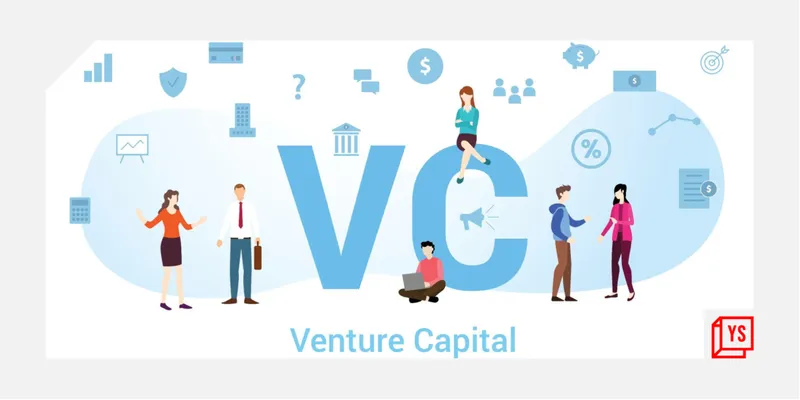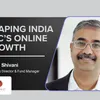This VC fund co-founded by Nandan Nilekani believes fewer bets can help build large businesses
Fundamentum Partnership, a $100 million VC fund founded by Nandan Nilekani and Sanjeev Aggarwal, helps startup founders put in place organisational structures and processes to help their businesses scale in size and revenue.
The India startup ecosystem continues to witness venture capital (VC) firms investing into startups at a rapid pace but Fundamentum Partnership, a fund co-founded by Nandan Nilekani and Sanjeev Aggarwal, strongly follows the philosophy that concentration on a few with high conviction will always work better.
The success of this approach is clearly visible in Fundamentum, which has made six investments over the last four years. Two startups in its portfolio, and , are in the unicorn league.
“We want to build businesses, which become very large and invest in that one company that can grow to that size,” says Ashish Kumar, General Partner, Fundamentum Partnership, in a conversation with YourStory.
Fundamentum was established in 2017 as a $100 million fund that invests in startups at Series B or C stage where it leads rounds of $10 million to $25 million in value.
The two core tenets of Fundamentum while investing in the startup have been on organisation building and speed to scale.
Focus areas
Ashish says Fundamentum enters a startup is when the organisation has figured out its basics – product-market fit, market opportunity, customers etc.
The question then is: how does one build that setup to get scale? This would mean putting certain structures in place and hiring the right people.
“One has to ensure from an organisational structure point of view that there are some places where it needs a centralised role, and others where it has to be decentralised,” Ashish says.
He cites the example of PharmEasy where they advised the founders to get a Chief Technology Officer (CTO) from outside to strengthen this department. “The founders agreed and greatly appreciated this step,” he remarks.

Fundamentum Partnership Co-founder Nandan Nilekani
It is generally seen that founders are typically very hands-on and would not like to take steps that would possibly mean letting go of their control. But, it is important at many times – to achieve growth and scale.
The second core value that Fundamentum brings to the table is the speed to scale on how startups can go really grow large in size where decisions are taken whether to build these organically or through acquisitions.
To help startups on this path to grow in scale, Fundamentum has enough arsenal on its board in terms of individual value.
The career of Nandan Nilekani as the Co-founder of Infosys and architect of Aadhaar is well documented as a builder of scalable, sustainable organisation with additional value on how to engage or deal with regulatory environment.
Sanjeev Aggarwal was the Founder of BPO company Daksh, which was sold to IBM, and Helion Venture Partners. Ashish has been an technology entrepreneur and closely associated with the startup ecosystem.
The VC gleans their learnings to carry them forward with startups.
“Our model is all about finding a large market and a founder with unbounded imagination who wants to build a very sizeable business,” Ashish says.
Building scale
The three top priorities that Fundamentum has when it starts to invest in startups are around the right way to build the organisation, understanding of customers to increase stickiness, and the transition from founder to CEO-led model.
“The founders need to understand which areas they are better at doing it themselves and those that can be delegated where you pick the right people,” Ashish says.

Given the portfolio of individuals at Fundamentum where they have founded ventures of their own in the past, this VC fund has also become a good sounding board for founders to challenge the status quo in their quest to build a sizeable business.
Ashish says, “When one is a founder, they are good at finding solutions but do not know what questions to ask. We walk along with them through various decisions.”
For example, in the case of Spinny, Fundamentum does not view the unicorn startup as a mere platform to buy or sell second-hand cars but sees it as an OEM for such vehicles.
Plans for the future
Fundamentum continues to remain sector-agnostic in terms of investments in startups. Apart from Spinny and PharmEasy, it has invested in FarEye and Travel Triangle. Two other investments from its first fund are still undisclosed.
As part of its future plans, Fundamentum is looking to raise its second fund this year. Its investment philosophy will remain the same in terms of taking fewer number of bets.
Ashish says the VC may “slightly increase” the number of investments it does in a year to about two to three, and the focus will be on Series B and C stages of funding.
“The metric we measure ourselves is how many of our companies become successful rather than mere returns on the fund,” Ashish says.
This explains Fundamentum’s concentrated portfolio and putting in enough number of hours to build large companies. In the process, as some of them become large-enough businesses, it automatically ensures the returns on the fund.
“The lesser understood area is also that funds are businesses, and we need to build something that last beyond all of us,” Ashish says.
The Fundamentum General Partner has been closely associated with the Indian startup ecosystem for more than a decade now and has witnessed numerous rapid changes.
He believes the quality of entrepreneurs has tremendously improved over the years and this also extends to the managerial level, one level below the founders.
The scope of investments has also spread beyond four or five sectors like logistics, retail, travel, and healthcare, and has become much broader to include agriculture, education, etc.
Indian founders now also have the ambition to take their companies global. Another change that has been seen is the rapid rise in valuation of startups.
Ashish says, “Four years back, the thesis was that we will invest at $100 million valuation and look for an exit at $1 billion. I have been pleasantly wrong as we now can look at a $5 billion potential exit.”
Ashish says he has had “a very rapid learning experience” at Fundamentum, switching from a role of building businesses to investing.
“The decision of an entrepreneur is based on speed with accuracy coming second, but it is the other way for an investor,” he says, adding that it is important for investors to double down along with founders to motivate them to persevere.
Edited by Teja Lele




![[The Turning Point] From multiple pivots to an investor backing out, how unicorn PharmEasy found its niche](https://images.yourstory.com/cs/2/a9efa9c02dd911e9adc52d913c55075e/Imagetk0t-1631690110455.jpg?fm=png&auto=format&h=100&w=100&crop=entropy&fit=crop)




